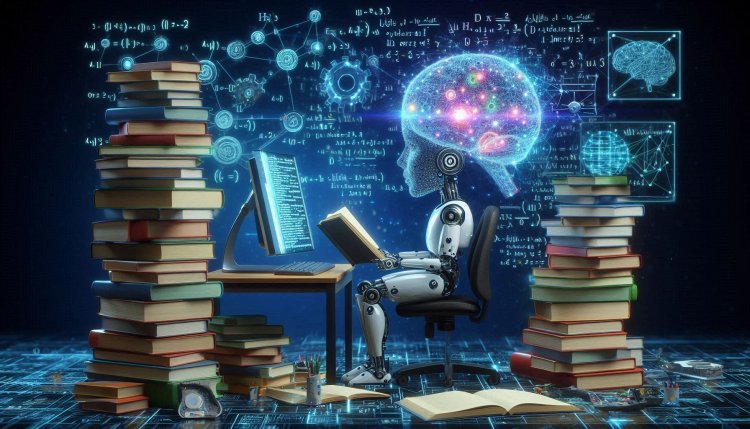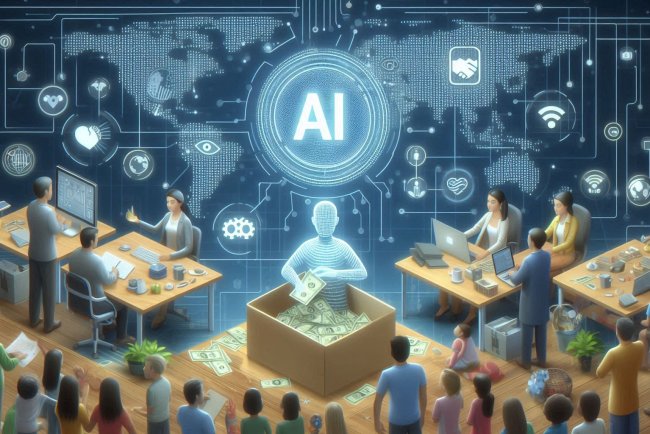AI economy: Economic effects and redistribution of wealth
Explore the economic impacts of AI on society, including wealth redistribution. Learn how artificial intelligence is shaping the future of the economy.

AI Economy: Economic Effects and Redistribution of Wealth
Artificial Intelligence (AI) is transforming the global economy in profound ways, with significant implications for the distribution of wealth and income. As AI technologies continue to advance rapidly, they are reshaping industries, changing the nature of work, and creating new opportunities for economic growth. However, the rise of AI also raises concerns about its impact on jobs, wages, and inequality.
Economic Effects of AI
The adoption of AI technologies is leading to increased productivity, efficiency, and innovation across various sectors of the economy. AI-powered tools and systems can automate repetitive tasks, analyze vast amounts of data, and make complex decisions at speeds far beyond human capabilities. This has the potential to boost economic output, drive down costs, and improve the quality of goods and services.
Furthermore, AI is enabling the development of new products, services, and business models that were previously unimaginable. From self-driving cars to personalized healthcare solutions, AI is revolutionizing industries and creating opportunities for companies to gain a competitive edge in the market. As a result, AI is expected to contribute significantly to economic growth and create new sources of value in the coming years.
Impact on Jobs and Wages
While AI has the potential to generate economic benefits, its widespread adoption also raises concerns about its impact on the labor market. As AI technologies automate routine tasks and processes, some jobs may become obsolete or undergo significant changes. This can lead to displacement of workers in certain industries and sectors, creating challenges for individuals who need to adapt to new roles or acquire new skills.
At the same time, AI is expected to create new job opportunities in emerging fields such as data science, machine learning, and robotics. These roles require specialized skills and expertise, which could lead to a growing demand for workers with technical proficiency in AI-related disciplines. However, the distribution of these new jobs may not be equitable, and some individuals may face challenges in transitioning to AI-driven industries.
Additionally, the impact of AI on wages is a subject of debate among economists and policymakers. While some argue that AI technologies could lead to higher wages for workers who possess in-demand skills, others express concerns about the potential for wage polarization and income inequality. As AI drives productivity gains and cost efficiencies, it is essential to consider how these benefits are shared among workers and whether adequate measures are in place to ensure fair compensation.
Redistribution of Wealth
The rise of AI has the potential to reshape the distribution of wealth and income within societies. As AI technologies create value and generate profits for companies, the question arises of how these economic gains are distributed among different stakeholders. In some cases, AI may concentrate wealth in the hands of a few individuals or organizations, leading to increased inequality and disparities in wealth ownership.
Moreover, the ownership and control of AI technologies play a significant role in determining who benefits from their economic value. Companies that develop and deploy AI systems can capture substantial returns on their investments, potentially leading to the accumulation of wealth and market power. This concentration of economic resources can further exacerbate existing inequalities and limit opportunities for broader wealth distribution.
Addressing the challenges of wealth redistribution in the AI economy requires policy interventions and regulatory measures to ensure that the benefits of AI are shared equitably among all members of society. This may involve implementing progressive taxation, promoting workforce training and education programs, and fostering inclusive economic growth that prioritizes social welfare and human well-being.
Conclusion
The AI economy is reshaping the global economic landscape, with far-reaching implications for the distribution of wealth and income. While AI technologies have the potential to drive economic growth, innovation, and productivity, they also raise complex challenges related to job displacement, wage inequality, and wealth concentration. Addressing these issues requires a multi-faceted approach that integrates economic, social, and technological considerations to ensure that the benefits of AI are shared inclusively and sustainably.
By understanding the economic effects of AI and its impact on wealth redistribution, policymakers, businesses, and individuals can work together to build a more equitable and prosperous future in the age of AI.
What's Your Reaction?

















